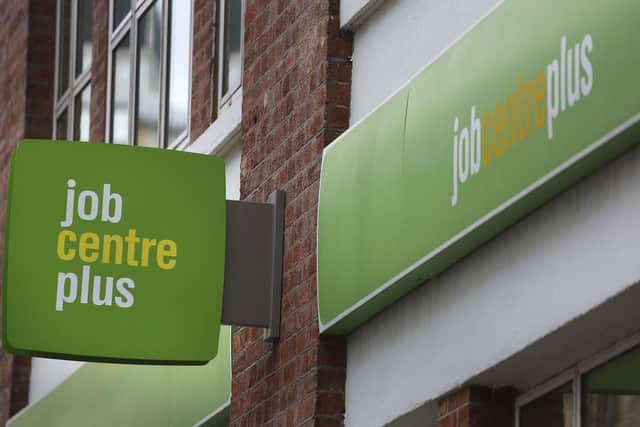Britain's jobs market rebounds further but pay growth lags behind inflation
The Office for National Statistics said the number of UK workers on payrolls rose by 108,000 between December and January to 29.5 million.
The unemployment rate also reduced by 0.2 percentage points to 4.1% over the three months to December.
Advertisement
Hide AdAdvertisement
Hide AdThis was in line with the predictions from a consensus of analysts.


The UK employment rate increased by 0.1 percentage points on the quarter to 75.5%, while the number of people deemed economically inactive also increased slightly.
Meanwhile, total pay growth rose to 4.3% for the quarter to December – from 4.2% for the three months to November – but continued to lag behind inflation, which soared to a near 30-year high of 5.4% in December.
The ONS said this means that real wages fell once you adjust for inflation over the quarter.
Advertisement
Hide AdAdvertisement
Hide AdIt comes as people ace mounting pressures from a cost of living crisis which is expected to worsen soon, with energy bills set to surge in April
Sam Beckett, head of economic statistics at the ONS, said: “The number of employees on payrolls rose again in January 2022 and is now well above pre-pandemic levels.
“However, our Labour Force Survey shows the number of people in employment overall is well below where it was before Covid-19 hit.
“This is because there are now far fewer self-employed people.
Advertisement
Hide AdAdvertisement
Hide Ad“The survey also shows that unemployment has fallen again and is now only fractionally above where it was before the pandemic.”
The new data also revealed record vacancy levels, with advertised job openings rising to 1.29 million for the three months to January, representing a 513,700 increase on pre-pandemic levels.
Martin Beck, chief economic advisor to the EY Item Club, said: “The latest labour market numbers suggest that the jobs market largely shrugged off the drag on activity from Omicron in December.”
Chancellor of the Exchequer Rishi Sunak said: “Our £400 billion economic plan has protected our jobs market through the pandemic and it is now healthier than most could have hoped for.
Advertisement
Hide AdAdvertisement
Hide Ad“Payrolled employee numbers are at a record high and redundancies are at an all-time low thanks to our plan for jobs.
“We’re continuing to help more people into work and are providing support for the cost of living worth over £20 billion across this financial year and next.”
Pat McFadden MP, Labour’s shadow chief secretary to the Treasury, added: “These figures confirm working people still face a fragile recovery in the face of a growing cost of living crisis and spiralling inflation.
“12 years of the Conservatives’ record means working people today will not only be paying more in tax under the Conservatives but face heating bills rocketing, prices rising and falling real wages.”
Comment Guidelines
National World encourages reader discussion on our stories. User feedback, insights and back-and-forth exchanges add a rich layer of context to reporting. Please review our Community Guidelines before commenting.
